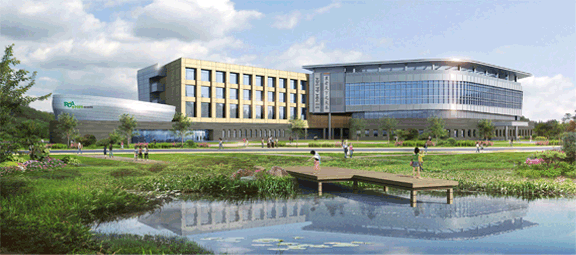INNOVATIVE LEARNING METHODS INCREASE MEDICAL STUDENT PROFESSIONALISM
Keywords:
innovative pedagogical technology, «flipped classroom», independent work of a medical student, traditional pedagogical technologyAbstract
The main requirement for a graduate of medical educational institutions is his professional competence and mobility. At present, high-quality education is impossible without the use of modern innovative pedagogical technologies. The experimental application of the “flipped classroom” pedagogical technology showed that this technology, when compared with traditional methods, is the most effective, objective and serves to expand the knowledge of a medical student not only within the boundaries of one taught subject, but also makes it necessary to acquire teamwork and self-control skills and self-education; in addition, a medical student will learn to make a decision in a specific situation, to work independently.
References
State educational standards for sustainable education in Uzbekistan. Tashkent. 2016
Maksimov M. L. et al. Clinical pharmacology and rational pharmacotherapy for practitioners. – 2021.
Maksimov M. L. et al. General issues of clinical pharmacology and pharmacotherapy. – 2020
MUSAYEVA D. M. INNOVATIVE TRAINING METHODS IN MEDICAL EDUCATION DO NOT REJECT TRADITIONAL METHODS // Managing Editor-Vice-Rector for Academic Affairs of the Federal State Budgetary Educational Institution of Higher Education Orgmu of the Ministry of Health of Russia Doctor of Medical Sciences, Professor TV Chernysheva. - 2021. - P. 90.
Musaeva D. M., Ochilova G. S. PERSONALIZED PHARMACOTHERAPY OF CHRONIC GASTRITIS // Pharmacology of different countries. - 2020. - S. 116-119.
Musaeva D. M. et al. Antibiotics. – 2019.
N.V. Tikhonova. Technology “Flipped Classroom at the University: Potential and Implementation Problems” // Kazan Pedagogical Journal. 2018. - No. 2. - S. 74-78.
Decrees of the President of the Republic of Uzbekistan dated April 20, 2017 No. PP-2909 “On measures for the further development of the higher education system”;
Resolution of the President of the Republic of Uzbekistan dated July 27, 2017 No. PP-3151 “On measures to further expand the participation of industries and sectors of the economy in improving the quality of training of specialists with higher education”;
Rakhimov Z. K., Musaeva D. M., Radzhabov N. G. Globalization of Daurid oliy ta'lim tizimi // Tibbiyotda yangi kun. - 2020. - Vol. 2. - No. 30/2. - S. 115-117.
Salieva M. Kh. et al. On improving health care // Achievements of science and education. – 2018. – no. 12 (34). - S. 61-67.
Subocheva A.D., Subocheva O.N. Innovative methods of teaching students. - Scientific works (Bulletin of MATI). Issue 21 (93) - M .: MATI, 2013, p.388-393
Sharipova O. Z., Meliboeva Sh. Sh., Musaeva D. M. Innovative teaching methods in medical education do not negate traditional // New day in medicine. – 2020. – no. 2. - P. 30.
Bergmann J., Sams A. Flip your classroom: reach every student in every class every day // Washington, DC: International Society for Technology in Education, 2012.
Blended Learning. Kombiniertes Lernen im Fremdsprachenunterricht. // Fremdsprache Deutsch. Heft 42, 2010.- 164 S.
Dumont A., Berthiaume D. La pédagogie inversée. Enseigner autrement dans le supérieur avec la classe inversée. – De Boeck Supérieur s.a., 2016. – P. 235.
Video concept maps in medical education / E. Kulakova [et. al] // AMEE – 2014: Abstract book. – Milan, 2014 – Р. 410.





